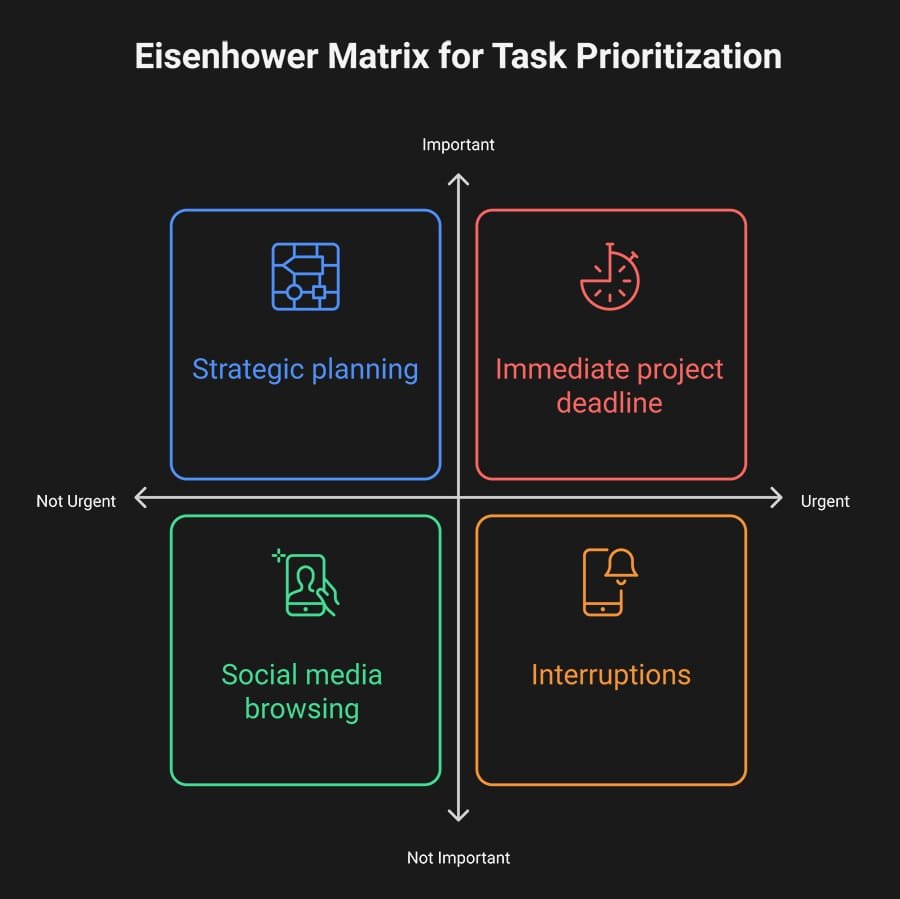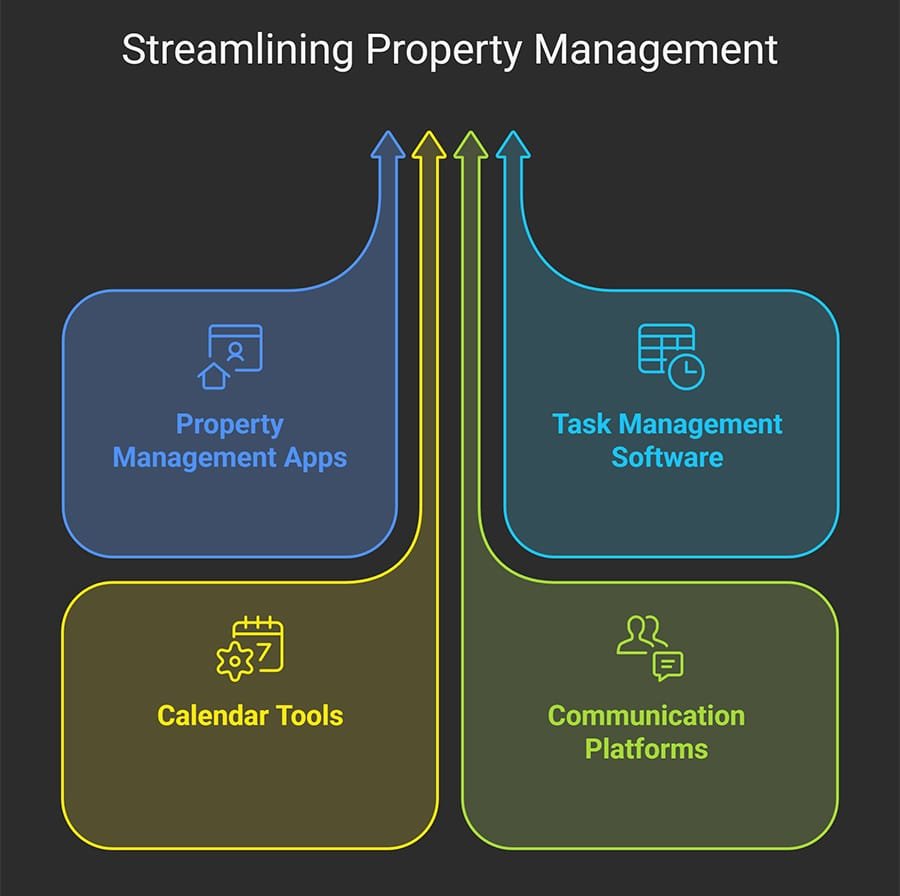
Being a property manager is no small feat. Between juggling resident issues, maintaining budgets, overseeing property performance, and staying on top of leasing activities, it’s easy to feel like there are never enough hours in the day. Sound familiar? If you’re nodding along, you’re not alone. Time management is one of the biggest challenges property managers face—but the good news is using these property manager time management tips is a skill that can be mastered.
By identifying common mistakes, implementing proven strategies, and using the right tools, you can take charge of your schedule and boost your productivity. This guide will show you how.
Before you can improve, it’s essential to understand where you might be losing time. Some typical time-wasters include:
By recognizing these habits, you’ve already taken the first step toward a more organized and productive day.
Time is a limited resource, but when you learn how to prioritize, you’ll discover that you can manage your workload more effectively. Here are a few techniques that can help:
1. The Eisenhower Matrix

Divide your tasks into four categories:
For example, a tenant emergency would fall under “Important and Urgent,” while updating your CRM might land in the “Important but Not Urgent” category.
2. Task Batching
Group similar tasks together to maximize efficiency. For instance, dedicate specific hours to returning phone calls, replying to emails, or processing invoices. By batching, you minimize the time lost switching between unrelated projects.
3. Delegation
Identify tasks that don’t require your direct attention, and delegate these to team members or outsourcing services. For example, routine inspections or marketing tasks can be managed by other staff or specialized professionals.

Investing in the right tools is a game-changer when it comes to time management. Here are some that can help streamline your workflow:
By automating and organizing repetitive tasks, you free up time to focus on higher-level priorities.

Emergencies are inevitable in property management—a leaking faucet, a tenant locked out, or a sudden property issue can throw even the best-laid plans into chaos. Here’s how you can stay composed when the unexpected arises:
Remember, the key is to minimize the time you spend in reactive mode by being proactive and systematizing your approach.
Property managers frequently lose time by reacting to issues as they arise instead of having a proactive plan. Inefficient communication, such as unclear instructions or delays in responses, is another significant time drain. Manually handling repetitive administrative tasks, like drafting similar emails or tracking payments without automation, also consumes valuable time. Finally, trying to handle everything personally instead of delegating tasks leads to overload and inefficiency.
Improving time management involves identifying common mistakes, implementing proven strategies, as well as utilizing appropriate tools. Recognizing time-wasting habits is the first step. Applying prioritization techniques, such as the Eisenhower Matrix or task batching, helps manage workload effectively. Leveraging technology and tools designed for property management can automate and organize tasks, freeing up time for more important activities.
The Eisenhower Matrix is a prioritization technique that categorizes tasks based on their importance and urgency. Tasks are divided into four groups: Important and Urgent (do immediately), Important but Not Urgent (schedule for later), Not Important but Urgent (delegate), and Not Important and Not Urgent (eliminate). This framework helps property managers determine which tasks require immediate attention, which can be planned, which can be assigned to others, and which are not worth pursuing.
Task batching involves grouping similar tasks together and completing them in a dedicated block of time. For example, setting aside specific hours for returning phone calls or processing invoices. This strategy is effective because it minimizes the time lost switching between different types of tasks, reducing mental overhead and improving efficiency.
Investing in the right tools can be a game-changer. Property management apps consolidate tenant communication, maintenance requests, and financial tracking. Task management software helps organize to-do lists, set deadlines, and track progress with automated tools. Calendar tools are essential for scheduling reminders for key dates like lease renewals and rent collection. Communication platforms centralize conversations with team members, reducing scattered communication.
Handling emergencies requires a proactive approach. Setting boundaries, such as establishing specific “call hours” for non-urgent issues, helps prevent being constantly on call. Creating a clear, documented emergency protocol ensures that property managers or their teams know exactly how to respond to common issues. Leveraging tools, like cloud-based property management platforms that allow tenants to submit maintenance requests directly, can also help manage emergency response more efficiently.
Delegation is crucial because property managers cannot effectively handle every task themselves. Identifying tasks that don’t require direct personal attention and assigning them to team members or outsourcing services frees up the property manager’s time to focus on higher-level priorities and strategic responsibilities. Failing to delegate can lead to burnout and reduced overall productivity.
Mastering time management is about working smarter, not necessarily harder. This involves a combination of avoiding common pitfalls like reacting instead of planning, implementing effective prioritization techniques, strategically using tools and software to automate and organize tasks, and having a plan in place for handling emergencies. By adopting these strategies, property managers can regain control of their schedules and operate more efficiently.

Mastering time management as a property manager isn’t just about working harder—it’s about working smarter. By avoiding common pitfalls, using prioritization techniques, leveraging the right tools, and having a plan for emergencies, you can regain control of your schedule and operate more efficiently.
Time Management Hacks for Property Managers: 15 Tasks to Automate, Delegate, or Eliminate
Read MoreDealing with difficult tenants is never easy, but with preparation, empathy, and clear policies, you can turn tense situations into...
Read MoreLearn 5 proven rent-raising tips, from communication to timing, without risking tenant turnover. Keep occupancy high and relationships positive.
Read More